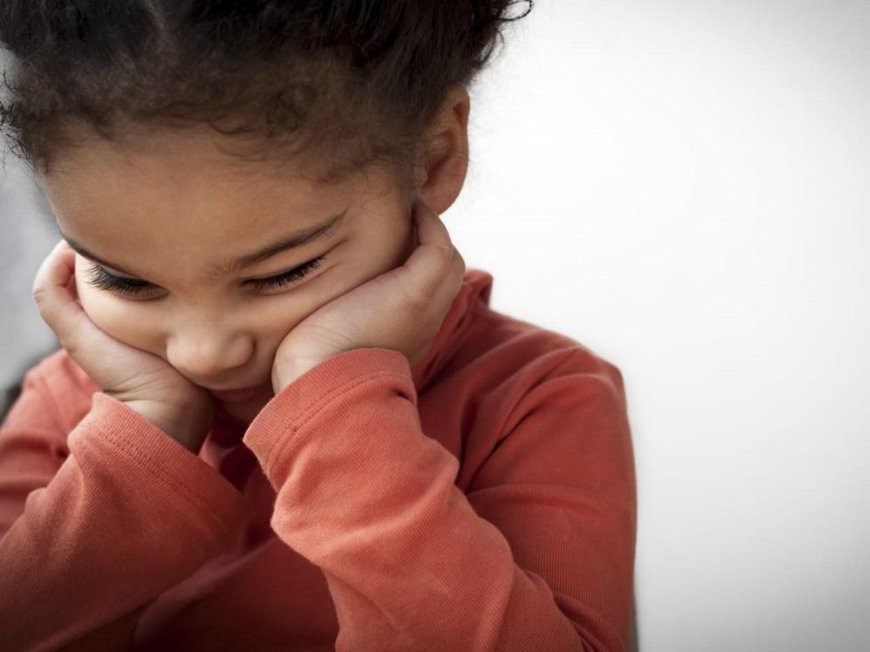Anger in a Child: How Can I Deal With It?
Anger in child is very common. It can be manifested, for example, by nerve attacks, kicking, crying. If parents fail to control it

Anger in child is very common. It can be manifested, for example, by nerve attacks, kicking, crying.
If parents fail to control it early and appropriately, anger in a child can have a devastating effect on the child himself and on his environment. That is why you should know what and how should be done to teach a child to deal with difficult emotions in a healthy way.
Anger in a child is very common. The little ones aged 2 to 4, in particular, often get angry.
Frustration occurs most often when a toddler faces a situation that he feels as unfair or unpleasant. On the other hand, when parents face their child's anger, they often don't know what to do. So how do you get over your toddler's tantrums?
What is anger in a child, and how does it manifest itself?
Anger is an emotion that is difficult to control for most children. It is associated with unpleasant sensations and discomfort related to a given situation. This causes the child to feel insecure and anxious.
Children can express their anger in a physical form - for example, by tightening their muscles. It is not uncommon for anger to increase blood pressure.
Other physical symptoms of anger include excessive sweating, flushing, and headaches.
Your child's anger also affects their behavior. The toddler may become passive and withdrawn. It will be difficult for you to get him to do anything.
Behavior such as kicking, pushing, throwing toys, pulling others by the hair, screaming, biting and breaking objects may also occur.
Why Do Children Get Angry?
Like adults, children become angry for external or internal reasons, such as:
- Stress
- Physical or emotional problems that children fear
- Frustration or a feeling of helplessness when a child is unable to do something
- Bipolar disorder
- Depression
- Willingness to get attention
- Difficulty communicating
- Hypersensitivity to stimuli
- Tiredness
- No sense of security
- Jealousy
Showing anger is a form of expression for young children. Although not the best method, toddlers often use anger to tell their parents that something is important to them.
Must Read: Social media for teens and its benefits
Why is it important to teach your child to deal with anger?
Anger in a child leads to undesirable behavior.
If a child always reacts aggressively to emerging frustration, he or she may grow into an adult who resorted to violence. This, in turn, will have unpleasant effects on the social, emotional and mental levels.
12 techniques for controlling anger in children
It is normal for a little one to have a tantrum from time to time. On the other hand, parents should constantly try to control their child's emotions and teach them how to deal with them.
Consider using the following techniques to teach your child to manage strong emotions:
- Don't lose control of yourself. If you answer your baby's screams yourself with a raised voice, you will let him know that shouting is okay.
- Help your child develop self-control. This way, you will prepare them to deal with their anger and other difficult situations.
- Give him time to calm down. Do not argue with an angry child. Give him time and a place to calm down.
- Act decisively but with patience and love. Thanks to this, the child will understand his position in the family.
- Try to avoid trying to change your child's behavior when you are angry and frustrated yourself. You may not direct them properly.
- Set a good example. You can of course say, "Do what I say and don't look at what I'm doing" but it won't do much. Children imitate adults and follow their example.
- Teach your child that anger is okay as an emotion, that he can feel it and communicate it, but that aggression is unacceptable.
- Tell your toddler how to recognize different emotions, name them and express them with words.
- Explain to your child the reasons why you refuse to do something or forbid him to do something. Try to make him understand why he can't eat more sweets or spend another hour in front of the TV.
- Encourage children to play games that allow them to express various emotions.
- Praise your child for good behavior and encourage them to constantly work on themselves.
- Show your child how to recognize their mistakes, learn from them and admit them by apologizing for inappropriate behavior.
Controlling anger in children: advantages
It is important that parents pay attention to teaching their child how to express, manage and manage their emotions in the best possible way.
One of the advantages of making this effort is to improve communication between parents and children. The little ones will know how to precisely let their caregivers know what they feel and what they need. They will discover that crying is not the only way to express anger and other emotions.
They will also learn empathy by discovering how to control emotions and communicate with others.
Working with a child related to taking responsibility for their emotions will also make the child understand that his parents are also teachers worth listening to.
If you feel your child is still having a hard time calming down, or if you see the tantrums happen very often, consider consulting a specialist.
An expert dealing with children's behavior will be able to assess the situation and tell you what solutions to use to help you and the child.
